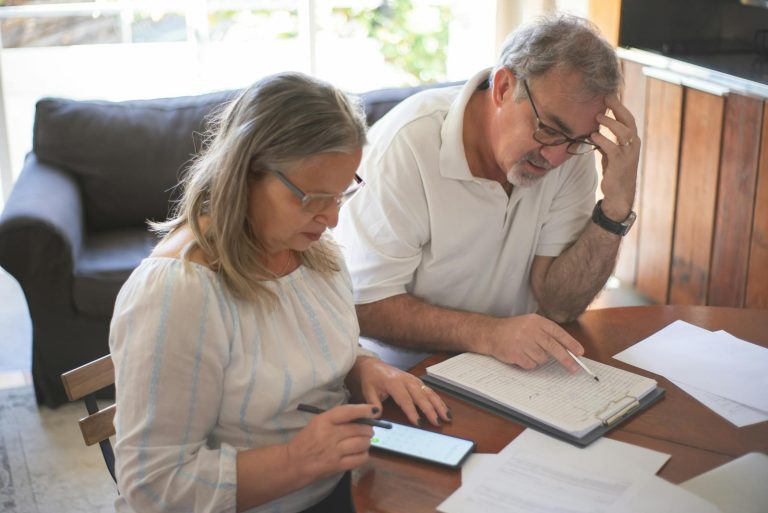In a divorce, dividing community property can feel like an overwhelming and complicated process. At Tampa Divorce Attorney, we understand the emotional and financial stress that comes with splitting assets. We have years of experience helping clients navigate through this tough time. Our goal is to make sure you get a fair and just division of your property, so you can move on to the next chapter of your life with peace of mind.
As indicated in most state laws, community property is usually split evenly between both parties in a divorce. Each spouse gets 50% of the shared assets and debts. This rule applies in states that follow community property law.
Introduction to Community Property
In community property law, any income earned or assets acquired by either spouse during marriage are considered jointly owned by both, regardless of who earned them.
In general, this means any income you earn, things you buy, and debts you take on. In states with community property laws, both spouses equally share everything acquired during the marriage, no matter who earned the money or whose name is on the property title. Things you owned before the marriage or gifts and inheritances given only to you are considered separate property and not shared.
The basic idea of community property is that marriage is a partnership where both people should share what they get while married. These rules are meant to protect both spouses financially if they divorce or one of them dies. By and large, community property laws are different in each state, and some states use a different system called common law.
Couples need to understand how community property laws work before getting married, especially since it affects who gets what if they divorce or one of them dies. Prenuptial agreements can help by setting clear rules about how property will be divided and protecting individual property.
In short, community property laws make sure things are divided fairly between spouses and recognize that both partners contribute to the marriage.
Definition of Community Property
Community property includes assets and debts acquired during marriage, creating a shared financial interest between spouses.
Largely in states with community property laws, all assets and debts acquired during the marriage belong equally to both spouses. This means each spouse owns half of these assets and debts, no matter who earned or spent the money.
Community property includes income earned by either spouse while married and anything bought with that money. It also covers debts either spouse took on during the marriage.
When it comes down to it, in contrast, separate property consists of assets and debts that belong to just one spouse, such as items owned before the marriage or gifts and inheritances received during the marriage.
If a couple divorces or legally separates, community property is usually split equally, while each spouse keeps their separate property. This split can be decided through negotiations or by a court.
Understanding these rules is very important for couples in community property states. Consulting with a lawyer can help ensure that both spouses get a fair share of assets and debts during a divorce.
Steps to Divide Community Property
Repeating what we discussed, dividing community property involves multiple steps, including inventorying assets and debts, valuing property, and negotiating a fair distribution.
Simply put, first, the couple needs to list all the assets they got during their marriage. This includes things like houses, cars, bank accounts, investments, and personal items. Next, they should find out how much each asset is worth, which might mean getting help from appraisers or financial experts.
After figuring out the value, the couple has to decide how to split the assets. They can do this by talking it out, getting a mediator, or going to court. They should think about each person’s financial needs and what they contributed to the marriage.
At the base, once they agree on how to divide the assets, they should write down their agreement or get a court order. This helps avoid future fights and makes sure everyone gets their fair share.
Sometimes, it’s a good idea to get help from lawyers or mediators to guide them through the process and protect their rights.
Common Mistakes in Division
As mentioned briefly before, a fascinating fact is that many errors in division stem from a fundamental misunderstanding of what division actually represents.
In other words, many people make mistakes with division. They might not know how to divide numbers the right way or when to use division in a problem. Sometimes, they divide numbers incorrectly because they don’t understand basic skills like times tables or how to divide by fractions.
Another common mistake is mixing up parts of a division problem, like the dividend and divisor. Setting up the problem wrong or forgetting about remainders can also lead to wrong answers. Let me explain, people often don’t check if their division answers make sense. Not verifying the result can mean missing errors and accepting wrong answers. It’s important to always double-check your work.
Lastly, not using division when it’s needed is also a mistake. Knowing when to use division and doing it correctly is very important. To avoid these mistakes, you need to understand division concepts, practice basic skills, set up problems correctly, check your answers, and use division when needed.
Legal Help for Property Division

From the previous explanation, legal help for property division is crucial as it ensures a fair distribution of assets and debts, protecting both parties’ financial interests during a divorce or separation.
To simplify dividing property during a separation or divorce can be tough and emotional. You may need help from a lawyer to make sure everything is divided fairly. A lawyer can help figure out what property the couple owns, what counts as shared property, and help negotiate an agreement or represent you in court if needed.
Understanding state laws about property division is important because the rules can be different depending on where you live. A lawyer can explain these laws and help protect your interests and belongings. At its simplest, they can also make sure all important financial information is shared and look for any hidden assets.
Having a lawyer can reduce some of the stress and emotions of dividing property. They can handle talks and communication with your ex or their lawyer, and help you understand your rights and choices. They will work to make sure the outcome is fair and acceptable.
In short, getting legal help for property division is important. A lawyer can guide you, represent you, and support you throughout the process, helping to protect your interests and assets.
My Concluding Remarks
Reviewing what we noted, in conclusion, the division of community property in a divorce is typically done through a fair and equitable process where assets and debts accumulated during the marriage are divided between the spouses.
What Tampa Divorce Attorney is encouraging you to keep is, that factors such as the length of the marriage, each spouse’s financial contributions, and the needs of dependent children are taken into consideration to ensure a just outcome.







